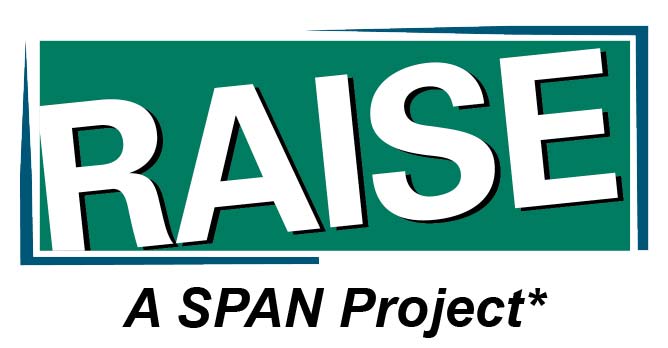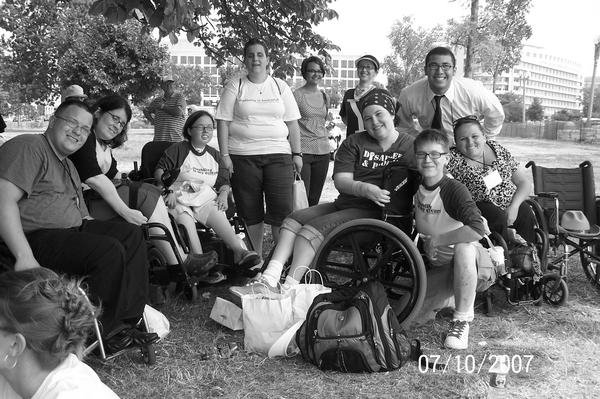Being a member of the ADA Generation is a privilege. The American with Disabilities Act (ADA) turns 30 years old on July 26, 2020. As a child with Cerebral Palsy (CP) when the ADA was passed 30 years ago, I was too young to realize just how much it would positively impact my life.
I want everyone reading this to realize that we are all privileged to live in the post ADA era. When people ask me what the ADA means to me my answer is quite simple…the ADA means everything. While I was fortunate enough to grow up with a circle of support that helped me learn and grow, it is the ADA that provided me access to true independence. Some people may see my point of view as extreme, but please give me a minute to explain.
The ADA protects the civil rights of people with disabilities and in short, provides me with equal access to things like education, employment, and public spaces. Growing up I was able to fully access my local school district, public schools were not always required to be wheelchair accessible. Graduating high school afforded me the chance to earn my way into college, where because of the ADA I had equal access to all that college had to offer, even the parties! While in college I met my beautiful wife and got on the path to a career of my choice. It is because of the ADA that I had equal access to employment opportunities upon graduation. My educational and employment experience have allowed me to own a home and start a family. In many ways the ADA has been a key part of my family pursing our best life. It means everything.
While I hope I have demonstrated the importance of the ADA and why we should celebrate its 30th birthday, the ADA generation needs to continue to move the conversation forward. How can the ADA be improved? What needs to be added to account for the ever evolving 21st century world? What kinds of advocacy can be done? A lot has changed since the disability rights movement in the 1960’s and 70’s. Our world is more connected than ever, how can that fact be leveraged to create change?
I recognize as a parent we are often focused on just getting through each day, but I encourage you to invest time in taking the following steps either by yourself, with your child, or with everyone in your circle of support.
- Research the disability rights movement that led to the passing of the ADA. Learn about the legends of the movement; Justin Dart, Ed Roberts, and Judy Heumann. A quick way to do this is watch Crip Camp on Netflix.
- Understand the ADA. What does it say? How does it protect people with disabilities?
- Learn how to explain your child’s disability in ways that almost anyone can understand. What is it? How does it impact their lives? And what supports would you recommend to maximize their independence?
- Connect with others in the movement to help create positive change.
Personally I started going through these steps (minus the Netflix) by accident at the age of 21. It is what has fueled my love and passion for the work I do 14 years later. Here is how these steps connect with my experience.
The Impact of Researching the Disability Rights Movement
While in college I joined a youth led, youth driven leadership and advocacy group for people with disabilities in an effort to bolster my dating prospects. (Yes, I initially joined the group in hopes of making a friend or finding a date). But I quickly learned that while I had been a person with Cerebral Palsy my whole life, I had a lot to learn about the experiences of other people with disabilities and how we are all one large community. I fell in love with the advocacy work and spent countless hours on the internet reading about the disability rights movement and then passing that information along to youth, family members, and professionals from across my home state of Pennsylvania. I would work ahead or flat out skip classes in college to attend conferences and travel hundreds of miles by bus or train (I had very little money by the way) to participate in rain-soaked disability advocacy rallies. I was a complete fanboy when I got to see Judy Heumann speak and to meet Yoshiko Dart, the wife of Justin Dart, at the National Council for Independent Living Conference in 2008.
At that conference veteran advocates shared stories about their struggles to gain equal access and equal rights with young adult advocates, and that is when I first understood how lucky I am to be a part of the ADA Generation. Advocacy before the ADA was much different then today, my generation stands on the shoulders of those who came before us. We all owe them a debt of gratitude. There is no way for the ADA Generation to truly understand what it meant to make the ADA a reality. I committed myself to trying to understand and learn. Sit-ins and protests are now replaced or enhanced by social media, crowd funding, and YouTube videos. The ADA has provided my generation a foundation to build on as we advocate for improvements. The ADA is landmark legislation and its history should be celebrated to help us understand where we have been and determine our next great step as movement.
Understanding the ADA
While I have long been a passionate advocate, I realized that to be a good one, I had to understand the laws that impact the work I am doing. Knowledge is power and can help you focus on your goals. It is tedious to read legal documents, but it is important to know your rights.
Understanding my Disability
I took a special education class in college and was given an assignment to research a disability. I obviously chose to research Cerebral Palsy, I thought it would be fun and easier to write then any other topic. While it was easy, it was transformative for me. I learned what CP is and how it impacts me daily, and it made me more comfortable when explaining the types of supports I needed to a friend, co-worker, or doctor. Self-advocacy is just as important as systems advocacy.
The Power of Community
The network I have built has provided me lifelong friends and mentors. These people have helped me in many ways from encouraging me to take the class where I met my wife and introducing me to the person who helped me with my Masters program to helping me obtain assistive technology that makes me a better father to my 8 month old daughter. These people have helped me get where I am today. I am blessed to say that the work I do is my passion and purpose. So, connect, learn, laugh, and lead.
Happy birthday ADA, thanks for the equal access you have provided to so many. We have come a long way in your 30 years, but we owe it to the veteran advocates and the generations to come to continue the fight for equal rights, and as Justin Dart would say, lead on!
Did you like this article? Are there other topics you’d like to see us publish on? Do you want to apply to be a guest blogger? Please take our quick, 3-question survey and let us know what you think!
Take Survey: http://survey.constantcontact.com/survey/a07eg1rmj5jjrasph9l/start


